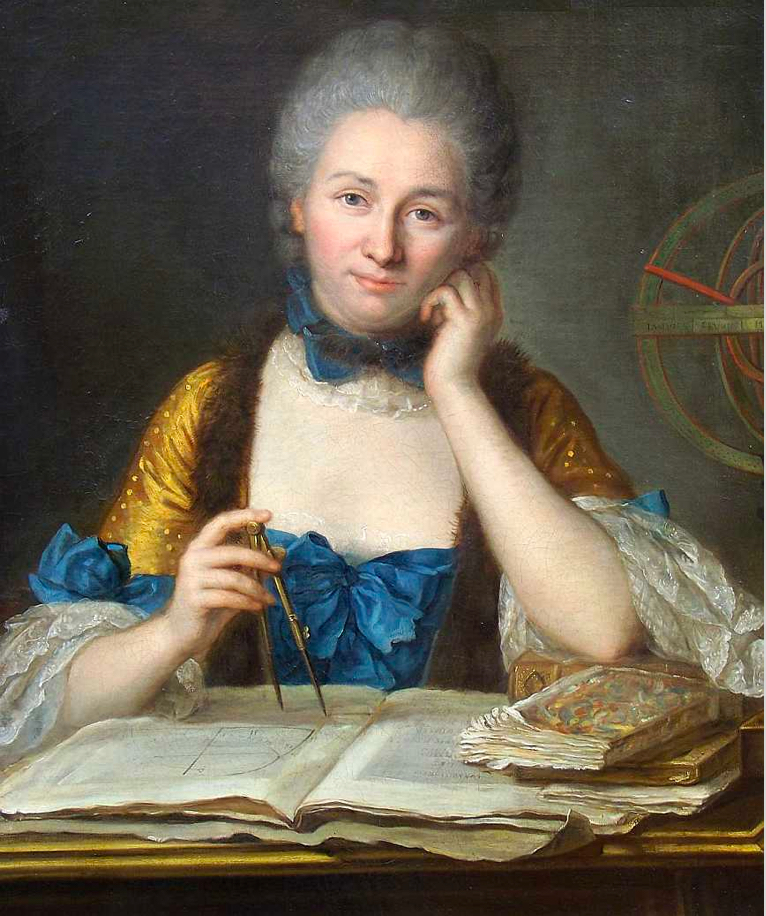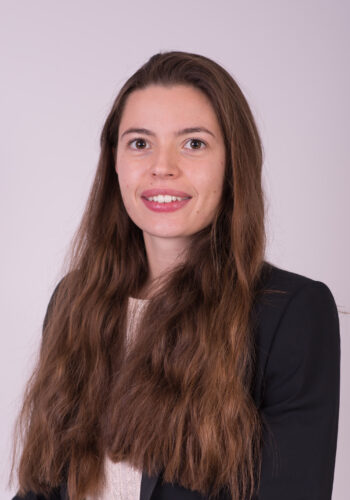Pourquoi la tech ?
C’est en m’émerveillant du monde que mon intérêt pour la technologie est né. Je ne cesse de m’étonner de la capacité de notre humanité à s’employer à enrichir ses savoirs, à concevoir de nouveaux instruments et procédés, à partir de tout ce qui a pu être transmis au cours des millénaires. Le défi permanent réside alors dans l’utilisation à bon escient de cette technologie en perpétuel renouvellement. C’est en particulier la définition de cette bonne utilisation qui m’intéresse autant qu’elle m’interroge, et ce d’autant plus face aux nécessaires transformations du monde pour respecter notre environnement.
Votre parcours ?
À 25 ans, mon parcours présente – je l’espère – plus d’étapes à franchir que d’étapes franchies. Mon intérêt marqué pour les sciences (et pas seulement) m’a amenée à débuter mes études au sein d’une classe préparatoire, à la suite de laquelle j’ai intégré Supélec, me spécialisant en Automatique et systèmes. Ces années furent particulièrement enrichissantes, entre formation intellectuelle théorique, expérimentations pratiques, expériences professionnelles (à travers plus de 18 mois de stages, en France et en Allemagne, dans des structures et à des postes tout à fait différents).
Votre première expérience professionnelle dans la tech ?
Mes premiers pas dans une entreprise technologique ont eu lieu au sein d’une PME bordelaise, i2S, fabricant de systèmes de vision, lors de mon stage de première année d’école d’ingénieur. Le travail au sein d’un atelier de production permet de se confronter aux produits finis, ce qui constitue un apprentissage utile pour un ingénieur amené à concevoir ces produits.
Que faites-vous aujourd’hui et pourquoi ?
J’ai la chance d’effectuer un doctorat pour le compte de Bpifrance au sein du Centre de Gestion Scientifique de Mines Paris.
Mes travaux de recherche portent sur l’accompagnement à la croissance des startups deeptech. C’est l’occasion de poursuivre ma formation intellectuelle en acquérant des connaissances en sciences de la conception et sur les nouveaux modèles de gouvernance d’entreprise.
Je développe ainsi des compétences propres à la formation « par » et « à » la recherche au cours d’un travail de thèse. Au-delà du cadre, qui m’ouvre notamment sur la sphère publique et le monde de la recherche, et du sujet, qui m’amène à découvrir des solutions technologiques à impact social et environnemental, et à en discuter les trajectoires potentielles, le choix du doctorat a aussi été motivé par sa reconnaissance à l’international.
Vos atouts pour ce poste ?
Ma curiosité et ma constante recherche de la variété dans le travail quotidien m’aident à ouvrir plusieurs voies. Le parcours généraliste dont j’ai bénéficié à travers une classe préparatoire et un cursus d’ingénieur me permet de m’intéresser en détails à des problématiques technologiques variées. Enfin, mes amis ont tendance à souligner ma capacité à entrer en relation avec les autres dans toutes les situations, ce que je ne peux réfuter.
Je me permets de transformer quelque peu la question et de souligner un atout majeur de mon travail de thèse : la remarquable qualité de l’encadrement dont je bénéficie. C’est, je crois, un élément essentiel pour progresser. Dans le cas d’un doctorat, cela fait d’autant plus partie des atouts pour mener à bien les recherches.
Vos défis passés, vos ratés, vos grands moments de solitude ?
Mes choix d’orientation, en particulier pour mon stage de fin d’études (en informatique à la R&D d’EDF) et pour ma thèse, ont été motivés par mon désir de me confronter à des domaines nouveaux. C’est bien ce défi d’adaptabilité qui m’attire, en satisfaisant notamment ma curiosité et mon désir d’élargir toujours plus ma vision. Il sera vraisemblablement moteur dans mes choix futurs.
Sur un tout autre plan, j’ai eu l’occasion, grandement favorisée par la crise sanitaire de la Covid-19, de vivre une autre expérience d’adaptabilité en m’installant seule dans une campagne française en télétravail durant 7 mois. Je me suis nécessairement questionnée sur la place de la technologie dans cette nouvelle vie, plongée au cœur de la nature et bien loin de solutions technologiques innovantes. Pour une citadine comme moi, ce temps a été propice à une transformation du regard sur la société.
Vos meilleurs moments, les succès dont vous êtes fière ?
En devenant représentante des étudiants à CentraleSupélec (au départ au sein de ma promotion, puis dans les instances officielles), je n’avais pas imaginé tout ce que j’en apprendrais. Ces apprentissages ont été d’autant plus nombreux que les enjeux étaient importants : la construction du nouveau cursus ingénieur CentraleSupélec et l’intégration au sein de l’Université Paris-Saclay ont développé mon goût pour les problématiques de l’enseignement supérieur. C’est un engagement que je suis fière d’avoir mené tout au long de ma scolarité. Cette dernière expérience très formatrice m’a amenée à la réitérer au sein de Mines Paris, en tant que représentante des doctorants au conseil d’administration.
Des personnes qui vous ont aidée/marquée ou au contraire rendu la vie difficile ?
Au cours de ma scolarité, j’ai eu la chance d’avoir plusieurs enseignants exigeants (dès la 6ème). Ce n’est peut-être pas toujours confortable sur le moment, mais les fruits sont nombreux à long terme ! Grâce à eux, j’ai développé un goût prononcé pour un certain nombre de matières et j’ai appris à apprécier la valeur de l’effort. Je leur en suis sincèrement reconnaissante.
Les années à CentraleSupélec furent particulièrement riches en termes de rencontres et je tiens à saluer la direction des études qui a su m’aider à plusieurs reprises et m’apprendre à regarder les situations dans toute leur complexité en s’ouvrant à d’autres points de vue.
Vos envies et défis à venir ?
L’importante question qui se pose à présent est celle de « l’après-thèse ». Le défi réside justement dans le fait de conjuguer toutes les envies, et en particulier celle de donner mon temps et mon énergie au service de la société et d’une écologie intégrale.
Et que faites-vous en dehors de votre travail ?
Au-delà de la recherche en gestion, toute aussi passionnante soit-elle, c’est la quête de Dieu qui m’attire. J’ai ainsi entamé en septembre 2020 une initiation à la théologie en suivant la formation des responsables dispensée au Collège des Bernardins.
Par ailleurs, je cherche à me dépasser et j’apprécie encore plus de le faire en bonne compagnie : pour cela, on se lance quelques défis sportifs entre amis. Le dernier en date : un trail de 25 km avec 1800 m de dénivelé positif. C’est aussi une excellente motivation pour faire du sport régulièrement.
Vos héroïnes (héros) de fiction, ou dans l’histoire ?
À la découverte des sciences s’est associée la découverte de ceux qui les ont peu à peu développées. Ainsi, Marie Curie a suscité ma grande admiration quand j’étais dans le secondaire, aux temps de mes premiers choix d’orientation : les modèles de femmes de sciences sont inspirants !
Votre devise favorite ?
En cas d’hésitation, je me répète cette phrase de l’Évangile selon Matthieu : « Demandez et l’on vous donnera ; cherchez et vous trouverez ; frappez et l’on vous ouvrira. » (Mt 7,7). Puis je passe à l’action !
Un livre à emporter sur une île déserte ?
J’emporterai bien sûr une Bible, pour me donner l’occasion de mieux comprendre notre humanité et notre culture. C’est une première étape pour réfléchir à une transition efficace ; la seconde est de trouver des outils. Pour cela, je ne peux que recommander la lecture de Refonder l’entreprise, par Blanche Segrestin et Armand Hatchuel : ils nous invitent à transformer notre vision de l’entreprise en remettant au centre le projet collectif qui en constitue la mission, et ainsi, à être en mesure de changer les critères de nos décisions.
Un message ou un conseil aux jeunes femmes ?
Avoir confiance en soi et toujours confiance en l’autre, parce qu’on va plus loin à plusieurs. Et surtout, toujours prendre plaisir dans ses activités !


